Boot.dev Blog - Pg. 5


4 Key Differences Between DevOps and DevSecOps
Jan 23, 2023 by Natalie SchoonerDoesn’t it seem like every day there’s a new mishmash of responsibilities into a job title? One day soon, someone will be hired as a DevOpSysSecInfraArc engineer.


6 Differences Between DevOps and Cloud Engineers
Jan 18, 2023 by Natalie SchoonerThe deeper you get into the tech sphere, the more unintelligible the job titles seem to be. Plus, the same title at different companies often encompasses different responsibilities. Ask twenty data scientists what they do and you’ll get twenty different answers.


I Didn't Explain Clearly, but Still Don't Learn Frameworks First
Jan 17, 2023 by Lane WagnerI wrote an article about not starting with frameworks that got some attention from /r/programming on Reddit yesterday. While a good number of people must have enjoyed the article (some people upvoted? idk) I was rightfully blasted with a lot of criticism. Here are some of my favorite comments:


If You're Learning Back-end, Don't Start with Frameworks
Jan 16, 2023 by Lane WagnerLook, I don’t hate frameworks. I’m not as starry-eyed as some other developers, especially when it comes to back-end frameworks, but I don’t think there’s anything wrong with using tools that make you productive. On the contrary, I’m always trying to find tools that make me as productive as possible.
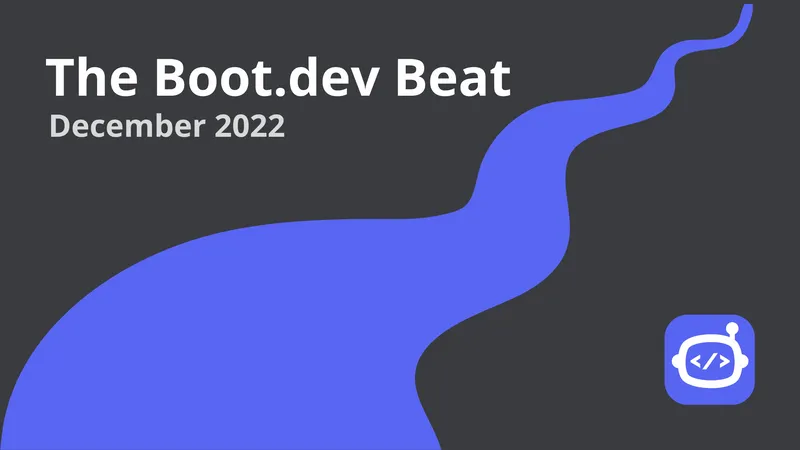

Boot.dev Beat. December 2022
Jan 06, 2023 by Lane WagnerI hope you’ve been able to enjoy some time with family! I took (almost) an entire week off from writing code, which I haven’t done in a long time. It’s good to be back though, and I can’t wait to see you around the Discord community.


Is Golang Best For Backend or Frontend Development?
Dec 19, 2022 by Natalie SchoonerPut simply, Golang is best for the backend side of a web application or website. There are many reasons that this is the case, so let’s dive in, but before we do, let’s cover some quick definitions.


What do Frontend and Backend Development Mean?
Dec 13, 2022 by Natalie SchoonerSoon after you dip your toe in the water of software development, you’re guaranteed to come across the terms “frontend” and “backend”. There are also frontend and backend developers, but what’s the difference? What do frontend and backend mean?


Snake Case or Camel Case? A Guide to Programming Naming Conventions
Dec 09, 2022 by Lane WagnerThe following names are all valid variable names in nearly every programming language: dogName dog_name DOG_NAME dog-name But which one should you use in your projects? Let’s chat about the popular naming conventions used in programming, and why you might choose one over another.


What is Backend-as-a-Service?
Dec 05, 2022 by Natalie SchoonerPlenty of people have heard of SaaS, or Software-as-a-Service, which is simply software made available by a third party over the internet. Think Salesforce, WordPress, or MailChimp. And most people know what a “backend developer” is, that is, someone who is responsible for things building server-side systems like user authentication and data storage.
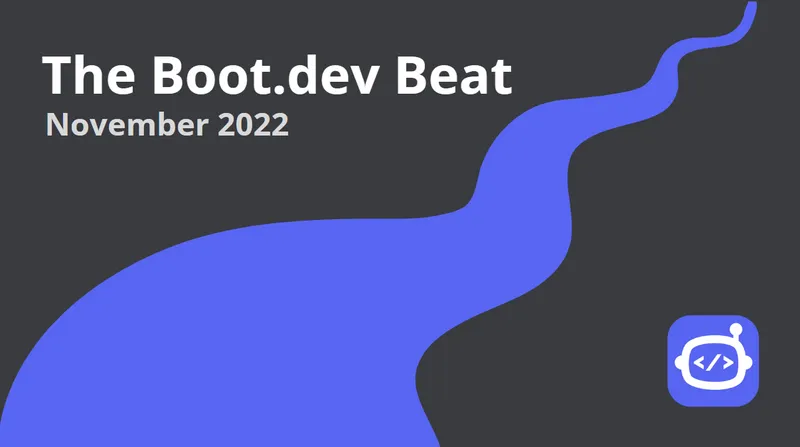

Boot.dev Beat. November 2022
Nov 30, 2022 by Lane WagnerI hope you’ve enjoyed your pumpkin spice lattes this fall, that is, assuming that you’re basic like me. The meme about programmers and their coffee will never be cliche right? Hope you enjoy this month’s issue.


The Top 22 Backend Technologies to Learn in 2023
Nov 16, 2022 by Natalie SchoonerA backend technology is anything used server-side to build stable and efficient web architectures. Back-end technologies include programming languages, databases, communication mechanisms, or frameworks that make up the building blocks of a web application’s back-end.


Add Libraries and Packages to Your Coding Portfolio
Nov 13, 2022 by Lane WagnerBuilding a job-ready portfolio of coding projects doesn’t happen overnight, but if you’re like most self-taught developers, you’ve likely built up a nice collection of todo apps, calculators, and other toy programs. Here’s the thing, applications for end-users are great, but I’m here to convince you that adding a library to your portfolio will make you much more hireable.


How to Round a Float in Go
Nov 13, 2022 by Lane WagnerIf you’re rounding a floating point number in Go, it’s most likely you want to format it in a string. Use the built-in fmt.Sprintf() function.


What do Tech Layoffs Mean for Budding Developers?
Nov 11, 2022 by Lane WagnerSo we’re officially in a recession, and now the question is, “what does a recession mean to me as a brand-new developer?”. It’s scary stuff. As you can see in this chart, tech stocks are getting hit hard.


The 8 Top Back-end Programming Languages for 2023
Nov 10, 2022 by Natalie SchoonerA backend programming language is what a programmer like you uses to create internal systems that work in the background of a web application. Backend developers make a lot of money and are growing in popularity and desirability.


What is a DevOps Engineer's Salary?
Nov 01, 2022 by Natalie SchoonerThe median DevOps engineer’s salary is $103,994 in base pay, with around $28,514 in additional pay through bonuses, commissions, and profit sharing according to Glassdoor. Salary.com estimates the average is closer to $125k, while BuiltIn puts the average closer to $128k in base pay, with an additional $15k in cash compensation.
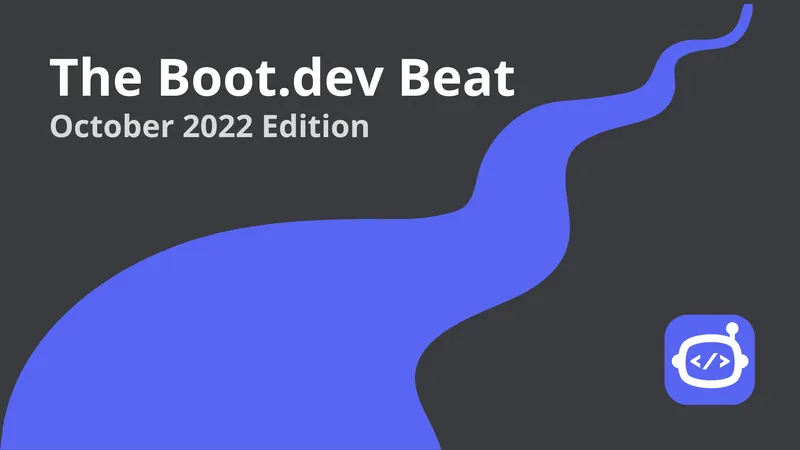

Boot.dev Beat: October 2022 Edition
Oct 31, 2022 by Lane WagnerHappy Halloween! We released a ton of new stuff on Boot.dev this October, and I’ve had a blast figuring out new mediums and tools we can use to create content. Anyhow, here’s to a great November glass clink. If you ever want to connect with me personally you can just reply here, I’d love to chat.


How Much Do Backend Developers Make?
Oct 25, 2022 by Natalie SchoonerThe short answer? On average, backend developers make either $82,462, $95,472, or $104,865 per year in base pay depending on who you ask. (I asked Glassdoor, Indeed, and Salary.com respectively.) StackOverflow uses medians instead, and their survey suggests the backend developers actually make upwards of $150,000 per year.
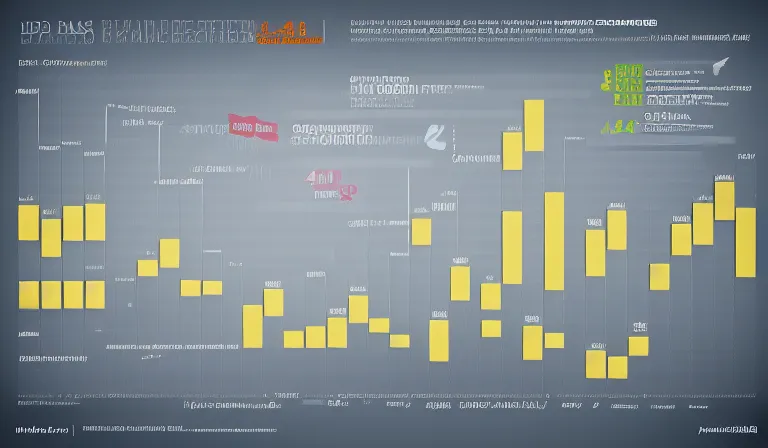

Trends in Developer Jobs: A Meta Analysis of Stack Overflow Surveys
Oct 24, 2022 by Lane WagnerI’m really interested in the trends we see in the software engineering job market. Sometimes it’s really hard to tell a cohesive and accurate narrative about what’s happening because it just happens so dang fast, and very few people are collecting data on the matter.
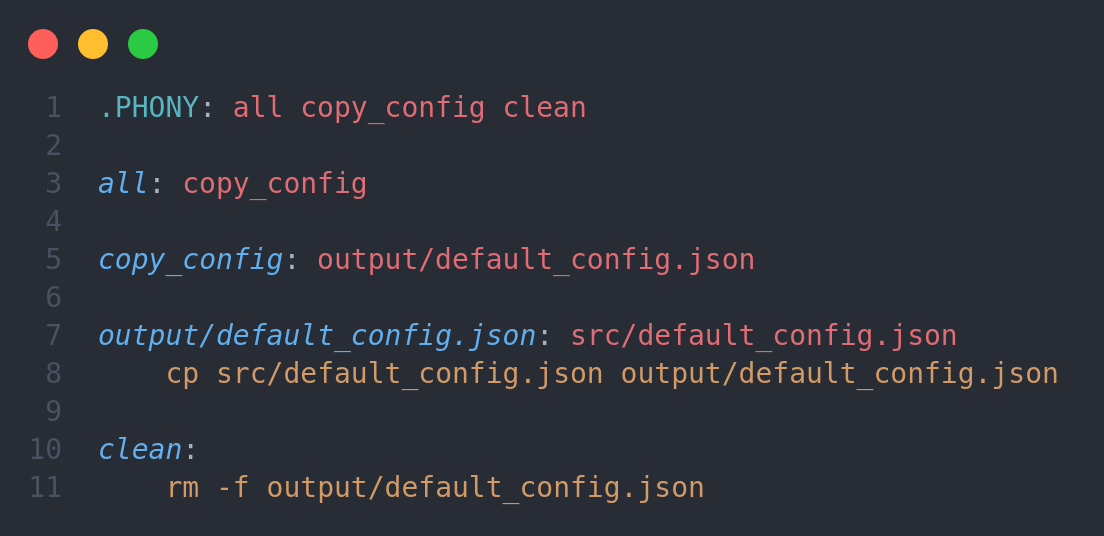

Makefiles to improve your life
Oct 19, 2022 by Casper AnderssonDuring development you may sometimes notice you run a lot of commands to set up, build, test, and manage your project. Sometimes, these end up requiring several steps, or you have trouble remembering the exact command. One way to manage this is to set up aliases in your shell configuration. While this would work fine for yourself and for a single build system, it would not be possible to share it in a convenient manner.


The 6 Best Backend Project Ideas for Beginners
Oct 19, 2022 by Natalie SchoonerWant to become a backend developer? Not surprising. Backend developers enjoy an average base salary of $160k per year, not to mention comprehensive benefits. And best of all? You no longer need a four-year degree to learn backend development. With the help of some of the best backend projects, you can prepare yourself for a backend development job in about nine months, even if you’re a total beginner.


All the Kinds of Functions in Python
Oct 13, 2022 by EteimsFunctions are one of the most versatile tools in any Python programmer’s toolbox. They enable code reuse and provide a form of abstraction. Python offers many different types of functions. In this article, I will be discussing the different types of functions you will encounter as a Python developer.


Should You Learn Front-end or Back-end Development First?
Oct 13, 2022 by Lane WagnerSo you want to get into web development, and you keep hearing about “front-end” and “back-end” positions. The question is, which should you learn first? As someone who’s held both front-end and back-end positions, and even been a hiring manager, read on and I’ll give you my thoughts.


The 7 Best Backend Bootcamps of 2022
Oct 11, 2022 by Natalie SchoonerSo you’re looking for the very best backend bootcamp of 2022. You’re not alone – most backend engineers earn over six figures according to Glassdoor, plus they have wide and varied job prospects. It’s a good gig.


Full-Stack Ops: Back-end and DevOps Roles are Merging
Oct 10, 2022 by Lane WagnerIt’s time for some speculation on my part 🔗 I believe that the job duties of “back-end” and “DevOps” engineers will coalesce to include almost everything that “the user doesn’t see”. There will still be room for specialization, but these roles will become less distinguishable overall.